Is It Time To Stop Thinking Funnel & Start Thinking Flywheel?
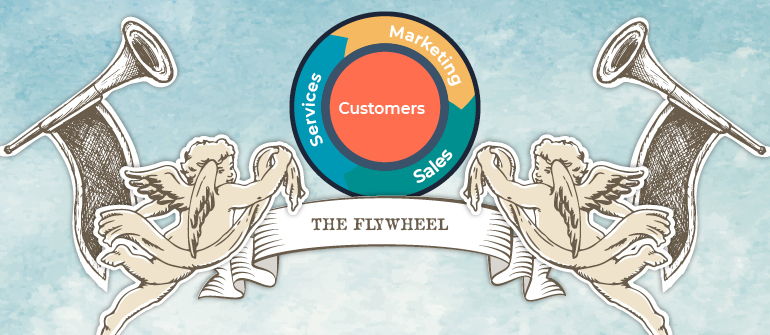
The simple answer to this question is yes but after many years of hard work structuring your business strategy around ‘the funnel’ and a ton of real-world data demonstrating how well ‘the funnel’ has been working, you’re wondering, why?
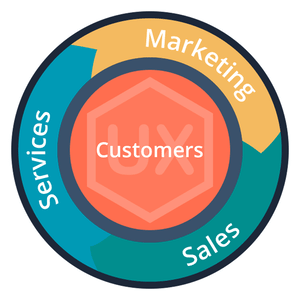
Why go to the effort of changing your strategy to align with a process that doesn’t seem all that different?
Is this just bored Marketers trying to refresh an old idea?
While the visual representation of these 2 methods may appear very similar, in reality the flywheel is an evolution of the funnel, a necessary response to a rapidly changing purchase process that is no longer as influenced by marketing content as it once was.
The flywheel provides Marketers, salespeople and business leaders alike the opportunity to shift focus and nurture their customers rather than forgetting them.
What will happen if you don’t adopt the flywheel?
Even if it isn’t apparent yet, at some point soon you're going to notice that the funnel is failing and no longer converting the number of leads to customers that it once did.
But it’s ok, don’t panic!
The flywheel isn’t a huge shift in thinking, embrace it now and ensure your business is being proactive and adapting to customers habits rather than scrambling to react.
Still not fully convinced? Let’s dive into the flywheel, how it differs from the funnel and ultimately why you should care…
The Achilles heel of the funnel

Today the purchase process is heavily influenced by customer referrals, user-generated content and word-of-mouth giving the funnel one major flaw - an Achilles heel if you will.
Customers are unfortunately an afterthought…
The goal of your funnel is to focus all your energy into converting leads into customers. You work through the funnel structure steadily gaining momentum until the achievement of the ultimate goal - a purchase and successfully converted customer!
Hurray!... But once you have that customer, what happens to all your wonderful momentum?
It just stops.
And then you go back to the beginning and the top of the funnel ready to convert the next leads into customers.
All that hard work wasted!
The problem is that the funnel just doesn’t consider customers as a driving force for growth. This is a huge opportunity missed particularly as so much effort has gone into attracting and converting those customers in the first place.
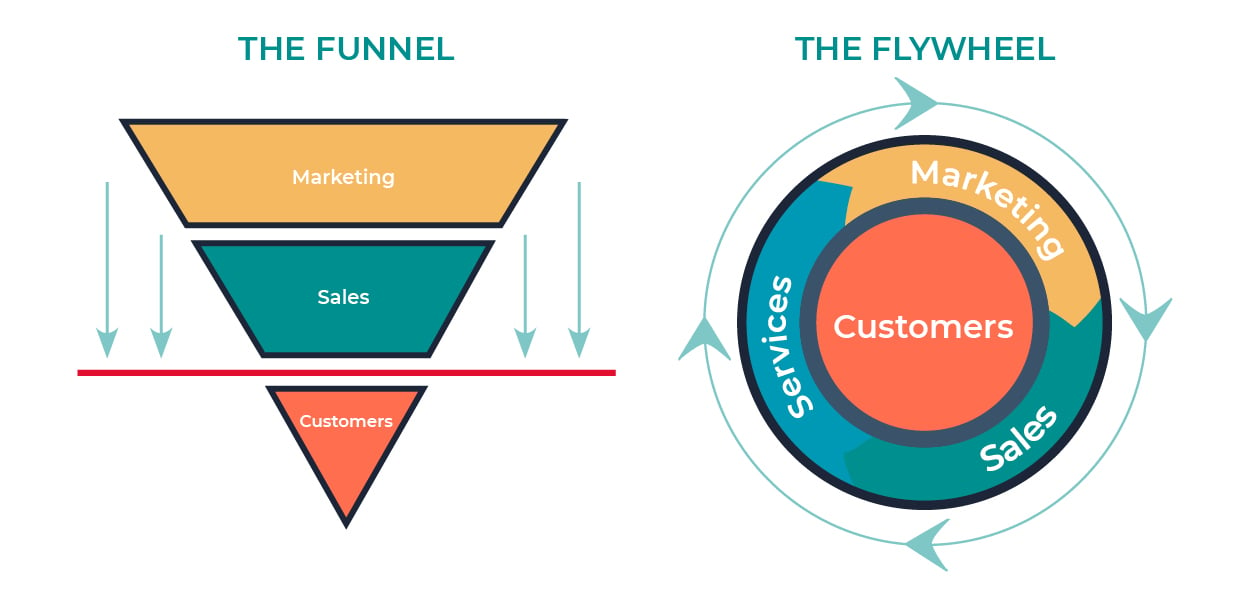
So if you keep plodding along with the funnel your customers may not stick around long enough for you to recoup your acquisition costs. This, in turn may increase your churn rate while at the same time you will be loosing all those potential promoters who could have shouted about your business.
Does that sound like a scenario that’s going to drive growth?
Learn more about churn rate in the article below:
Customer Churn and How to Calculate it
This is where the flywheel comes in…
Think of the flywheel as the ‘lean, green, energy efficient’ version of your funnel. Instead of being wasteful and throwing all that momentum away, the flywheel recycles it into processes and resources that keep your valuable customers happy thus driving referrals and repeat sales.
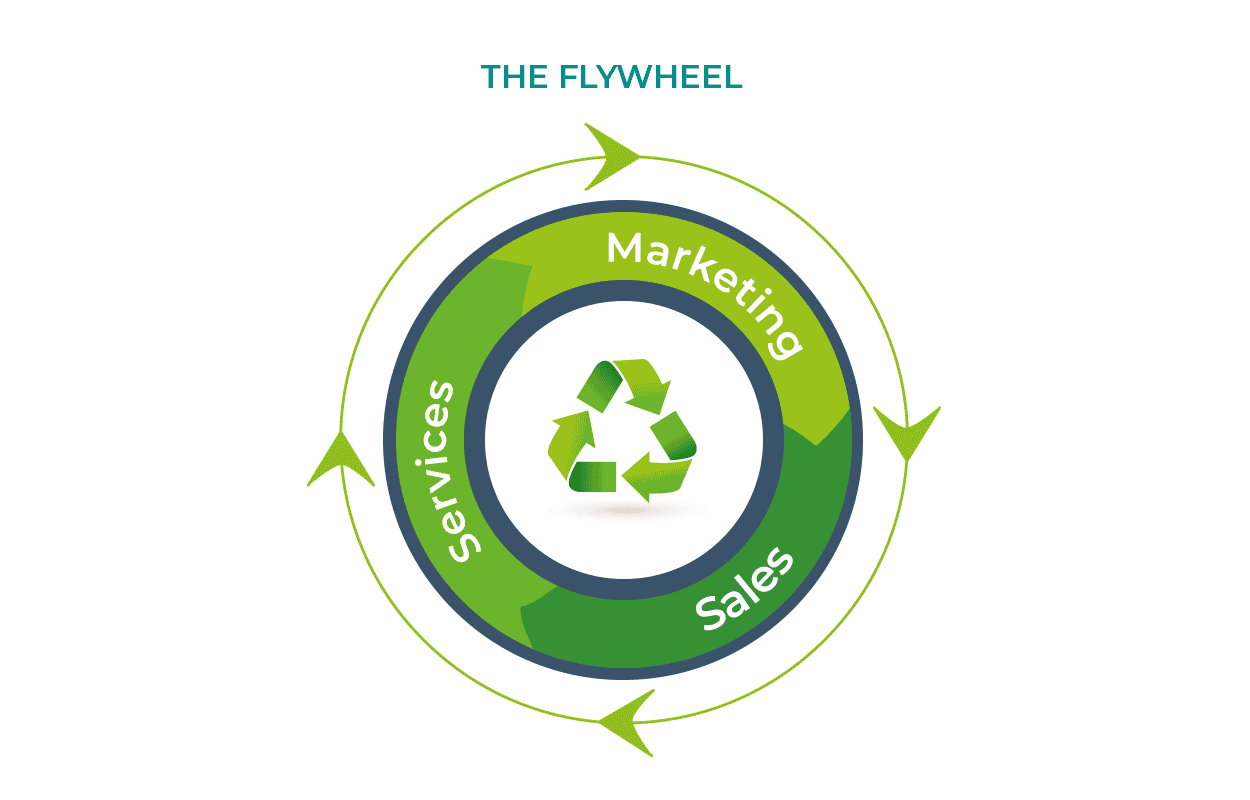
In business terms, the flywheel makes better use of all those expensive marketing and sales activities you have invested your valuable time and resources in. This improves your marketing and sales ROI while at the same time making customer satisfaction and retention as important as converting leads to customers.
Think about it…you have paid a lot of money to gain your customers so why not make them work for you?
Mind blown?

Great so we have established that the flywheel is more comprehensive than the funnel but what else does it do better?
Here’s a quick sum up…
- The flywheel demonstrates true alignment between Marketing, Sales and Support.
The funnel started the process of aligning marketing, sales and support but in a linear structure where customers are passed from one to the other. The flywheel instead demonstrates how marketing, sales and support teams should collaborate and feed into one another to power the flywheel spin and create an amazing all-around customer experience.
- The flywheel aligns perfectly with the inbound methodology.
(See our guide to inbound marketing for UK SME's) Inbound marketing is a customer-focused way of marketing that nurtures your audience and is compliant with the latest data protection legislation.
- The flywheel is easily applied to the customer lifecycle.
The funnel is difficult to align with the customer lifecycle because it only represents half of the journey. 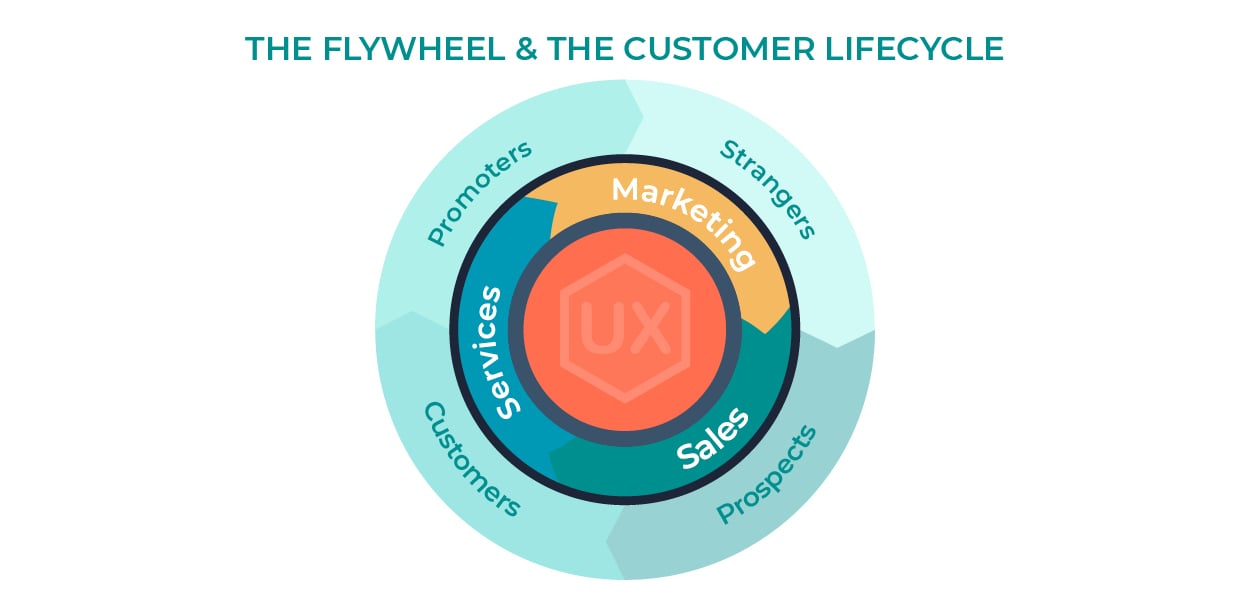
The flywheel integrates all stages of the customers lifecycle allowing your business to adapt and create processes that not only consider the stranger and prospect but also the customer and promoter stages.
- The flywheel is supported by real data!
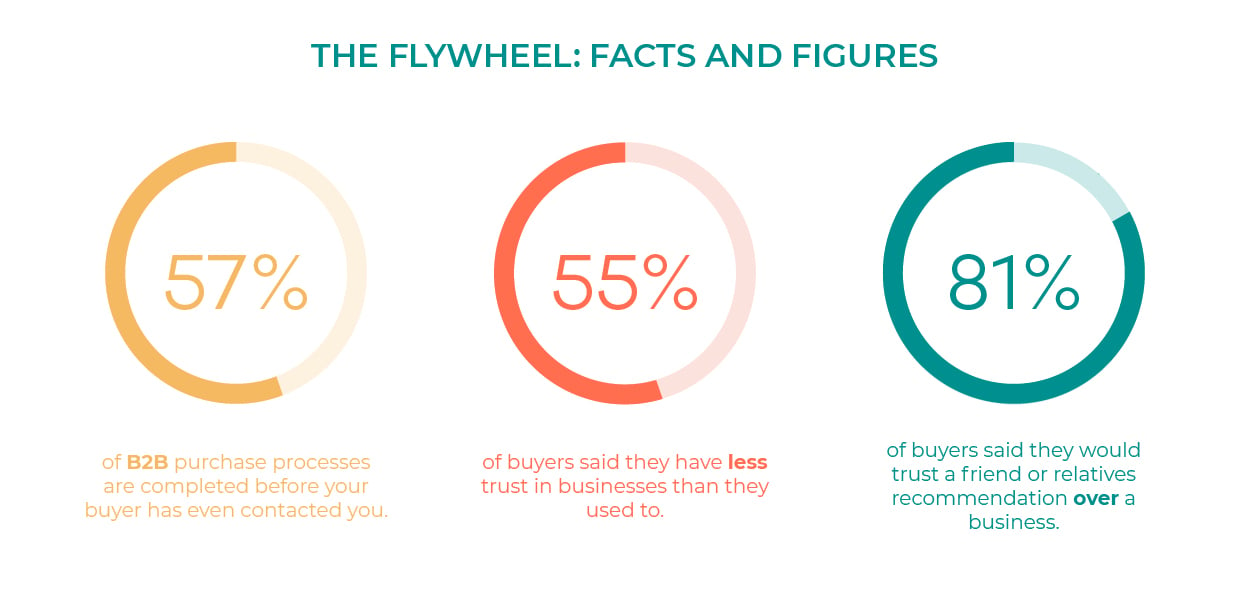
57% of B2B purchase processes are completed before your buyer has even contacted you. This means they aren’t using your marketing material to help make their decisions. Instead they are looking at reviews, asking for recommendations from their peers and contacts or they are reacting to unsolicited word-of-mouth recommendations.
55% of buyers said they have less trust in businesses than they used to.
81% of buyers said they would trust a friend or relatives recommendation over a business.
(Hubspot, The Inbound Methodology and the Flywheel)
- The flywheel is flexible, it loves User Generated Content…
Whether it’s a new social channel or the latest content format you want to jump on while it’s still fresh, you can easily and quickly integrate it into your strategy because the flywheel puts a high value on user-generated content.
User-generated content, the forgotten part of inbound marketing eGuide.
Instead of needing to rely on your team identifying trends and attempting to react and participate while the trend is still, well trendy, the flywheel allows you to make the most of existing customers engagement with minimum disruption.
- The flywheel can quickly identify activities that have a big impact in driving growth for your business.
Your Marketing, Sales and Support teams can put more energy behind the activities that are successfully driving growth. Streamlining and speeding up effective processes will make it clear which activities are dragging and slowing growth down.
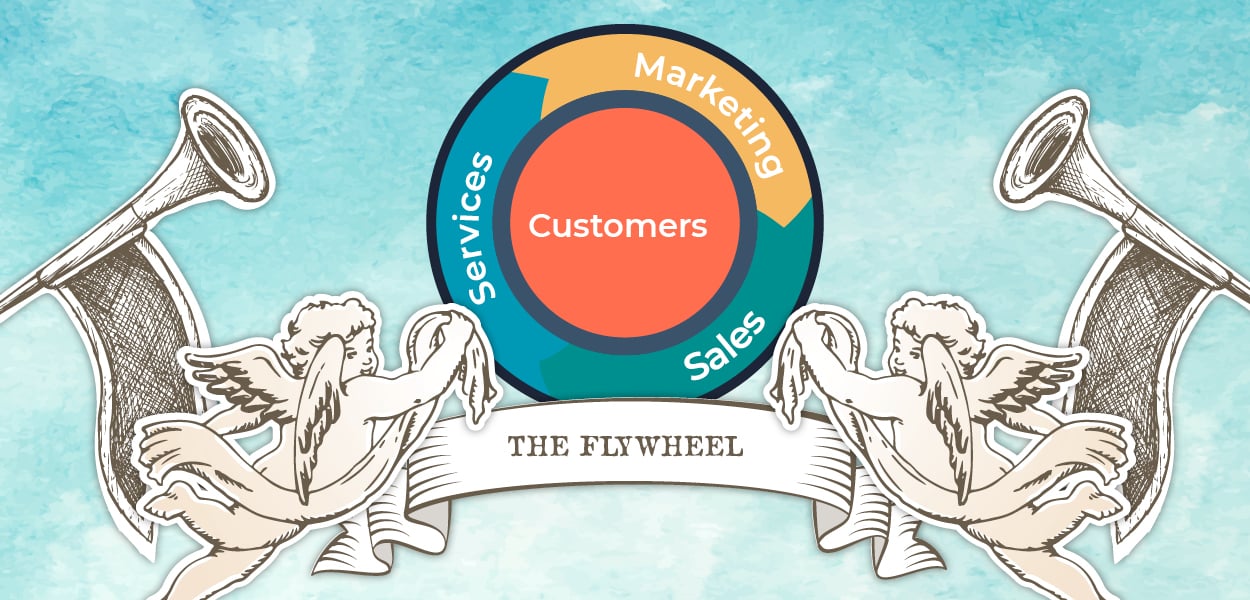
In 2019 and beyond, one of the biggest threats your business is going to face is not competition but bad customer experience. It’s time to get your flywheel spinning and make sure your business is not only surviving but thriving in today’s customer orientated markets.



